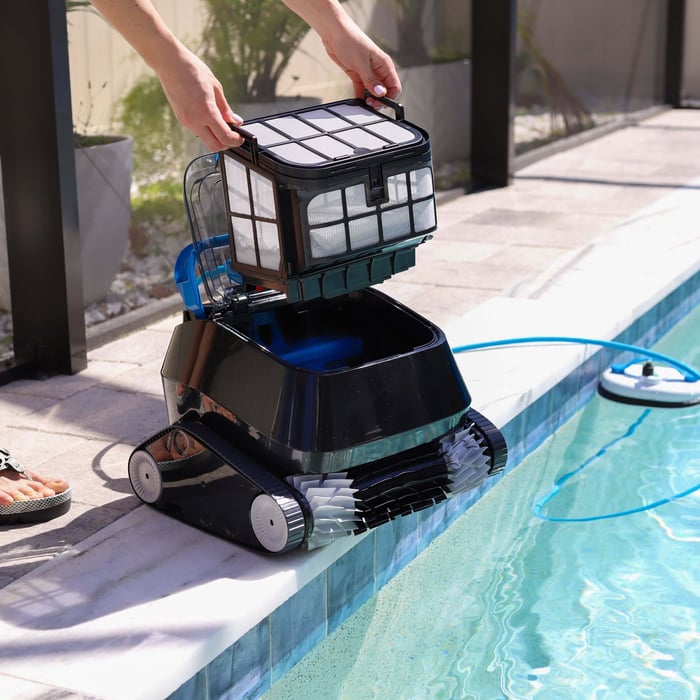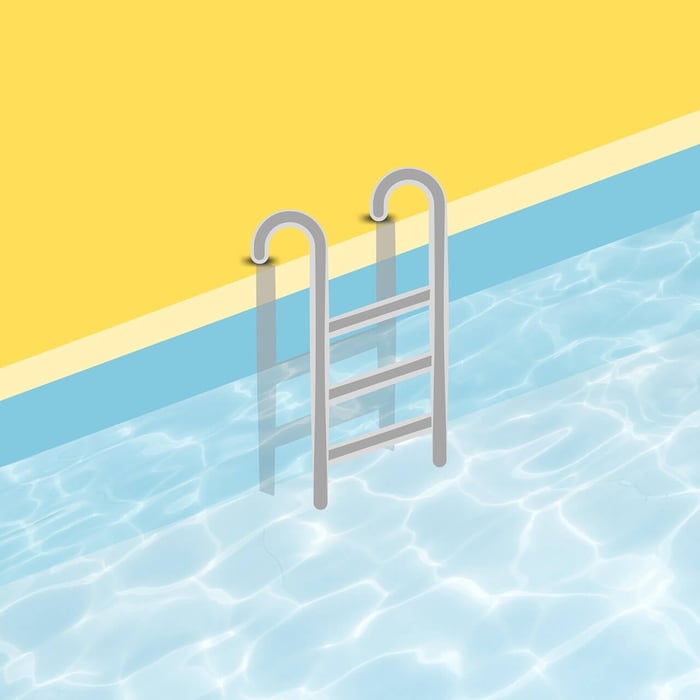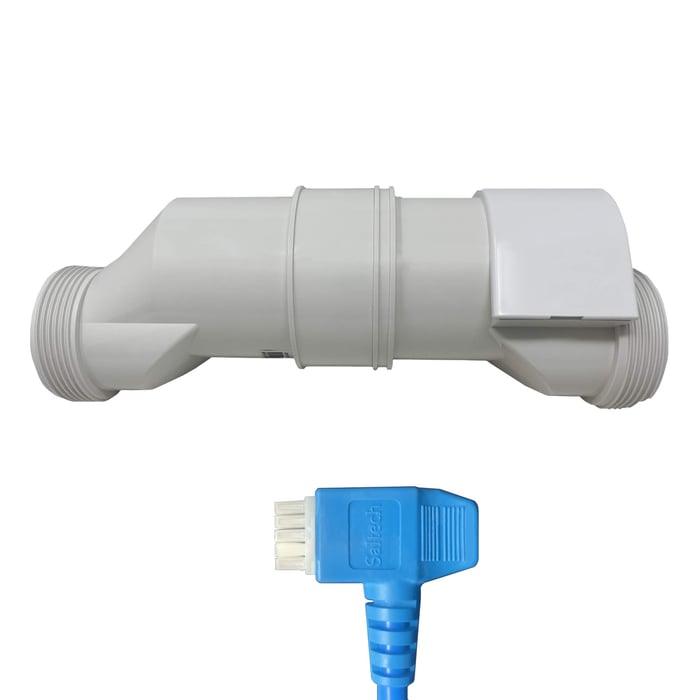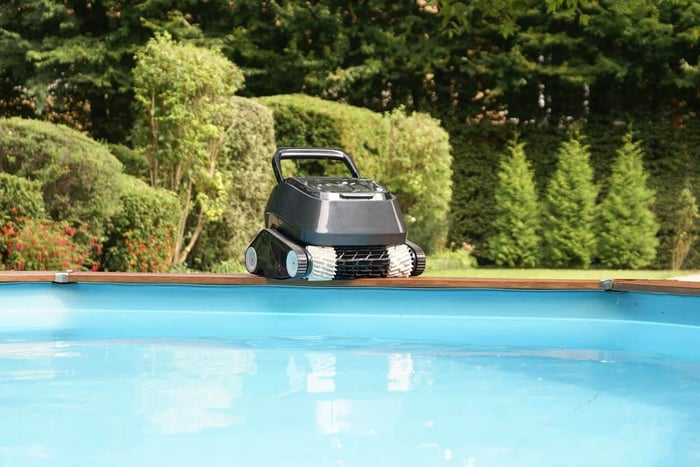In today’s backyard, robotic pool cleaners are no longer luxury gadgets — they’re practical, time-saving essentials. Whether you own an above-ground or inground pool, chances are you’ve looked into these automated machines. But as powerful as they are, even the best unit has its limits.
In this guide, we’ll look at the common types of pool debris a robotic pool cleaner can handle, and where it might fall short. We’ll also highlight a few top-rated models from NYC Pool Supplies — including the popular Black Pearl line — so you can find the right fit for your pool’s cleaning needs.
✅ What a Robotic Pool Cleaner Handles Best
From windblown leaves to invisible pollen, modern robotic models can deal with more than you’d expect.
🍃 1. Leaves — Fresh or Waterlogged
Leaves are one of the most common nuisances for pool owners. A high-capacity cleaner like the 8streme Black Pearl Ultra features a wide-mouth intake and 7-quart debris basket, making it easy to scoop up both floating and sunken foliage.
🏖 2. Fine Dirt and Sand
If your pool is near landscaping, construction, or coastal areas, dirt and sand buildup is inevitable. The Black Pearl Robotic Pool Cleaner includes ultra-fine filter inserts specifically designed to trap microscopic grit.
🐶 3. Hair, Pet Fur & Grass Clippings
This kind of debris tends to stick to pool surfaces and is often missed by basic vacuums. A high-quality robotic cleaner with rotating scrub brushes can capture it before it clogs up your filter system.
🌼 4. Pollen and Light Algae Film
During the spring, pollen buildup makes pools appear dull. Advanced robotic systems can sweep up this fine material, especially when paired with a fine filter insert.
⚠️ What It May Leave Behind
Even with top-tier features, there are a few debris types that robotic pool vacuums struggle with.
🪵 1. Branches, Twigs & Oversized Debris
Large or irregular debris can jam the unit or get ignored altogether. For pools under trees, a quick manual skim before deploying your cleaner is highly recommended.
🧸 2. Floating Toys & Surface Plastic
Since most robotic devices work underwater, they can’t reach items floating on the surface — like pool rings, wrappers, or inflatables.
🔗 Need help with chlorination? Explore our Offerings for Salt Pool Systems
🪰 3. Bugs, Foam & Floating Residue
Unless you’re using a robotic surface skimmer (a separate category), your cleaner will glide right past these floaters.
🧼 4. Heavy Algae or Biofilm
While many robotic models can scrub away minor buildup, deeply embedded biofilm or black algae typically requires shock treatment or brushing.
🔗 To fight algae effectively, check out our pool treatment solutions.
🧠 Match Your Cleaner to Your Pool’s Conditions
Still unsure what’s best? Use this quick reference to align your pool’s needs with the right features:
| Pool Problem | What to Look For |
|---|---|
| Lots of foliage | Large intake, oversized basket |
| Dust & fine debris | Fine filter insert, focused suction |
| Hair & fur | Anti-tangle brushes, fine mesh |
| Mild algae | Wall-scrubbing brushes, multi-directional movement |
🛠️ Tips to Maximize Performance
Even the best robotic pool cleaner benefits from proper maintenance. Here’s how to keep your unit running strong:
Empty baskets regularly to avoid clogging
Switch filters seasonally (use fine filters in spring)
Pre-skim larger debris if the pool hasn’t been cleaned in a while
Store the unit in shade when not in use
Run regularly to avoid buildup and save on chemical use
🏁 Final Word
A well-made robotic pool cleaner can handle 90% of the debris you’ll encounter — from wind-blown leaves to sand, pollen, and hair. It’s an essential part of a modern pool maintenance routine, saving hours of work and keeping water crystal clear.
Just remember: no cleaner is completely hands-off. For best results, pair your robot with surface skimming, balanced chemicals, and seasonal maintenance.
Ready to upgrade your clean? Explore our full collection of robotic pool cleaners now.




